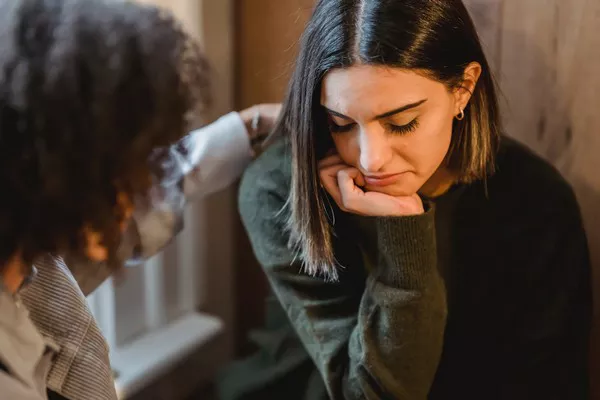Anxiety is a natural human response to stress, but it can become overwhelming when it starts interfering with daily life. Mild anxiety is a common experience that many people face at various points in their lives, whether triggered by work pressures, social situations, or personal challenges. While it’s not debilitating like more severe forms of anxiety, mild anxiety can still disrupt your emotional well-being and quality of life. The good news is that there are several effective ways to manage and cope with mild anxiety, helping you regain control and reduce its impact.
In this article, I will explore the nature of mild anxiety, discuss coping strategies, and provide practical tips for managing symptoms. At the end of the article, I’ll answer some frequently asked questions (FAQs) to further clarify how you can take action to ease anxiety in your everyday life.
What Is Mild Anxiety?
Mild anxiety is a feeling of worry, nervousness, or unease that is manageable but persistent. Unlike severe anxiety disorders, mild anxiety doesn’t incapacitate you, but it can manifest through physical, emotional, and cognitive symptoms that slightly interfere with your day-to-day activities.
Common Symptoms of Mild Anxiety
Physical Symptoms: Mild headaches, muscle tension, restlessness, rapid heartbeat, or a feeling of being on edge.
Emotional Symptoms: Irritability, uneasiness, or feeling overwhelmed.
Cognitive Symptoms: Difficulty focusing, racing thoughts, or excessive worrying.
Mild anxiety is often situational, meaning it can arise during certain stress-inducing events, such as preparing for a presentation, attending a social gathering, or dealing with financial concerns. While these feelings are temporary, they can leave a lasting impact if not addressed properly.
Coping Strategies for Mild Anxiety
1. Practice Mindfulness Meditation
Mindfulness meditation is one of the most effective ways to manage anxiety. It helps you focus on the present moment, reducing the tendency to dwell on negative thoughts or future worries. Practicing mindfulness involves deep breathing and focusing on sensations in your body, thoughts, and feelings without judgment.
How to Practice Mindfulness Meditation
- Find a quiet and comfortable place.
- Sit in a relaxed position with your back straight.
- Close your eyes and take deep breaths, paying attention to the rise and fall of your chest.
- Let your thoughts come and go without clinging to any particular idea.
- Practice this for 10-15 minutes daily for best results.
2. Engage in Regular Physical Activity
Exercise has long been recognized as a powerful tool for reducing anxiety. Physical activity boosts the production of endorphins, which are the brain’s feel-good chemicals. Exercise can also distract you from anxious thoughts, improve sleep, and enhance your overall mood.
Recommended Activities:
- Walking or jogging for 30 minutes daily.
- Yoga, which combines physical movement with mindfulness.
- Strength training or aerobics to release built-up tension.
3. Challenge Negative Thoughts
Cognitive restructuring is a technique used in cognitive-behavioral therapy (CBT) to help individuals challenge and reframe irrational or negative thoughts. Mild anxiety often involves thinking patterns that exaggerate the potential for negative outcomes, which can amplify feelings of worry.
Steps to Challenge Negative Thoughts:
Identify the thought: Write down the specific thought that is causing anxiety.
Examine the evidence: Evaluate the facts supporting or opposing the thought.
Reframe the thought: Replace the negative thought with a more balanced, realistic perspective.
For example, if you’re worried about an upcoming meeting, you might initially think, “I’m going to embarrass myself.” Challenge this by asking, “What evidence do I have that this will happen?” You might realize that you’ve successfully handled similar situations before, which can help ease your anxiety.
4. Create a Relaxation Routine
Building relaxation techniques into your daily routine can help you manage mild anxiety. These techniques reduce the body’s stress response, helping you feel calmer throughout the day.
Relaxation Techniques:
Deep Breathing: Slow, deep breaths help activate the body’s parasympathetic nervous system, which calms the body down.
Progressive Muscle Relaxation: Tensing and then slowly releasing each muscle group helps alleviate physical tension related to anxiety.
Visualization: Imagine a peaceful scene, such as a beach or a forest, to help your mind shift focus away from stressful thoughts.
Incorporating one or more of these relaxation techniques into your daily schedule—whether it’s in the morning, before bed, or during breaks—can significantly reduce mild anxiety.
5. Set Realistic Goals and Expectations
Mild anxiety is often linked to feelings of pressure and the fear of not living up to expectations. It’s important to set goals that are realistic and achievable. Overloading yourself with too many responsibilities can increase stress, while failing to meet unrealistic expectations can exacerbate anxiety.
How to Set Realistic Goals:
- Break larger tasks into smaller, manageable steps.
- Prioritize tasks based on importance and deadlines.
- Learn to say no when you are overwhelmed.
- Be kind to yourself when things don’t go as planned.
See Also: Why Do I Struggle Going to Work Every Day?
6. Limit Caffeine and Sugar
Caffeine and sugar can trigger or worsen anxiety symptoms. While a cup of coffee might seem like a harmless boost of energy, it can actually stimulate the nervous system, increasing feelings of nervousness and jitteriness.
Tips for Reducing Caffeine and Sugar Intake:
- Switch to herbal teas or decaffeinated coffee.
- Replace sugary snacks with healthier alternatives like fruits and nuts.
- Gradually reduce the amount of sugar and caffeine you consume to avoid withdrawal symptoms.
7. Develop a Support System
Connecting with others can be an excellent way to reduce mild anxiety. Sometimes, talking about what you’re going through with a trusted friend, family member, or counselor can offer emotional relief and a fresh perspective.
How to Build a Support System:
- Reach out to close friends or family members when you feel anxious.
- Join a support group or community that understands your concerns.
- Consider professional therapy if your anxiety persists or worsens.
8. Prioritize Sleep Hygiene
Lack of sleep can significantly contribute to anxiety. Sleep deprivation makes it more difficult to regulate emotions, exacerbating feelings of worry and stress. Establishing good sleep habits is crucial for managing anxiety.
Tips for Better Sleep:
- Maintain a regular sleep schedule by going to bed and waking up at the same time every day.
- Create a relaxing bedtime routine, such as reading or taking a warm bath.
- Avoid screens (phones, tablets, computers) at least an hour before bed.
- Keep your bedroom cool, dark, and quiet.
9. Limit Exposure to Triggers
Some situations or activities may trigger or worsen your anxiety. Identifying and managing these triggers is essential for reducing anxiety in the long term.
Common Anxiety Triggers:
- Overwhelming work or school responsibilities.
- Excessive social media use.
- High-stress environments or relationships.
Once you’ve identified your anxiety triggers, take steps to minimize or avoid them where possible, or learn to approach them with a healthier mindset.
FAQs
1. What is the difference between mild anxiety and generalized anxiety disorder (GAD)?
Mild anxiety is temporary and situational, often linked to specific stressors, whereas generalized anxiety disorder (GAD) is a chronic condition characterized by excessive, uncontrollable worry about a wide range of topics, occurring for six months or more.
2. Can mild anxiety go away on its own?
Yes, mild anxiety can resolve on its own, especially if it’s tied to a specific event or short-term stress. However, if not addressed, it may worsen over time or become chronic.
3. Are medications necessary for mild anxiety?
For mild anxiety, medication is typically not required. Non-pharmacological interventions like mindfulness, relaxation techniques, and lifestyle changes are often sufficient. However, if symptoms worsen, a healthcare provider may discuss medication options.
4. How long does mild anxiety last?
The duration of mild anxiety can vary. It may last for hours, days, or weeks, depending on the stressors involved. Implementing coping strategies can help reduce its intensity and duration.
5. When should I seek professional help for my anxiety?
If your anxiety begins to interfere with your daily life, relationships, or work, or if coping strategies are not effective, it’s a good idea to seek professional help. A therapist can provide additional tools and support tailored to your situation.
Conclusion
Mild anxiety is a manageable condition, and with the right coping strategies, you can lead a balanced and fulfilling life. By understanding your triggers, practicing relaxation techniques, and maintaining a healthy lifestyle, you can significantly reduce the impact of anxiety on your day-to-day activities. If anxiety becomes persistent or overwhelming, don’t hesitate to seek professional support.
Related topics:



























